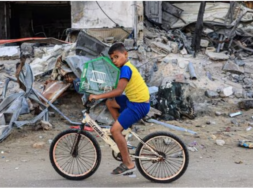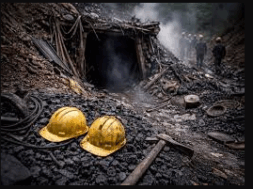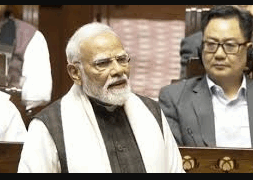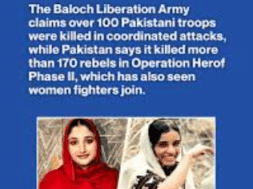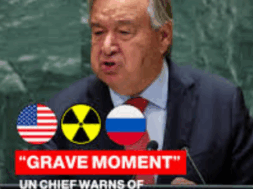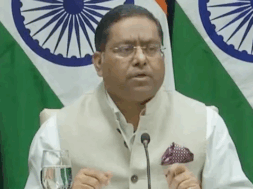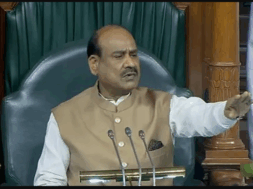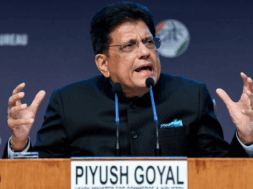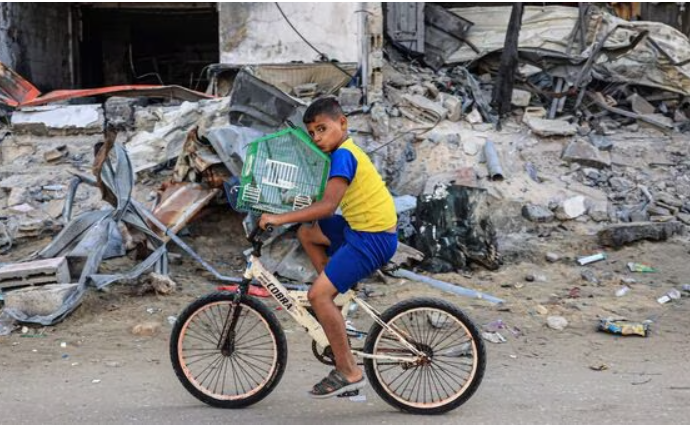
Roving Periscope: No general ceasefire, as Israel prepares for the long haul in Gaza
Virendra Pandit
New Delhi: The cycle of death and destruction continues.
The Israeli Defense Forces (IDF) are unlikely to return home anytime soon even if and after they ‘win’ the Gaza War. They are, instead, preparing for a long haul in the Palestinian enclave of 2.3 million poor people, 1.5 million of whom have been internally displaced or fled to neighboring Egypt.
A month of the Hamas-Israeli war has claimed over 10,000 deaths in the Gaza Strip after Tel Aviv launched massive air and ground counteroffensive in the wake of the October 7 invasion of Hamas, which brutally killed over 1,400 Israelis.
Of course, Israel is open to “little pauses’ in its war against the Hamas terrorists in the Gaza Strip, Prime Minister Benjamin Netanyahu was quoted by the media as saying on Tuesday.
He, however, reiterated his country’s rejection of a total ceasefire without the release of all 250-odd people being held captive by Hamas.
Hinting at a prolonged stay in Gaza, he said Israel will shoulder its responsibility to secure the Palestinian enclave “indefinitely,” the reports said.
Netanyahu said Israel would consider “tactical little pauses” in the Gaza war to facilitate the entry of aid or the exit of hostages, but again rejected calls for a general ceasefire despite growing international pressure and Muslims’ relentless anti-Israeli demonstrations worldwide.
In an interview with a US TV channel, the PM, whose country has vowed to destroy Gaza’s Hamas rulers, said he thought Israel would need security responsibility over the Palestinian enclave for an “indefinite period” after the war.
Asked about the potential for humanitarian pauses in fighting, an idea supported by Israel’s top ally, the United States, Netanyahu said a general ceasefire would hamper his country’s war effort.
“As far as tactical little pauses – an hour here, an hour there – we’ve had them before. I suppose we’ll check the circumstances to enable goods, humanitarian goods to come in, or our hostages, individual hostages, to leave,” Netanyahu told ABC News on Monday.
“But I don’t think there’s going to be a general ceasefire.”
Asked who should govern Gaza when the conflict is over, Netanyahu said: “I think Israel will for an indefinite period … have the overall security responsibility because we’ve seen what happens when we don’t have that security responsibility.”
An early peace, anyway, seems distant as both Israel and Hamas have rebuffed mounting international pressure for a ceasefire. Israel says hostages taken by Hamas during its attack in southern Israel on October 7 should be released first. Hamas, which has so far released only four captives, says it will not free them nor stop fighting while Gaza is under the Israeli assault.
Since the attack a month ago, in which Hamas killed 1,400 people in Israel and seized around 250 hostages, Israel has struck Gaza from the air, imposed a siege, and launched a ground assault, stirring global alarm at humanitarian conditions in the poverty-ridden enclave, and the possibility that the conflict could spread to other countries, particularly in the Middle East.
The health ministry in the Hamas-controlled enclave said at least 10,022 Palestinians have since been killed, including 4,104 children. Most of the enclave now looks like a vast wasteland of heaps of rubble.
International organizations have said hospitals cannot cope with the thousands of wounded and food and clean water are running out with aid deliveries nowhere near enough.
“We need an immediate humanitarian ceasefire. It’s been 30 days. Enough is enough. This must stop now,” said a statement from the heads of several United Nations bodies on Monday, including UN High Commissioner for Human Rights Volker Turk, World Health Organization head Tedros Adhanom Ghebreyesus, and UN aid chief Martin Griffiths.
The USA has been trying to persuade Israel to pause in the conflict and allow aid to enter, while also arguing like Israel, that Hamas would take advantage of any full ceasefire to regroup.
US President Joe Biden discussed such pauses and possible hostage releases in a phone call with Netanyahu on Monday, reiterating his support for Israel while emphasizing that it must protect civilians, the White House said.
UN Secretary-General Antonio Guterres warned on Monday that Gaza is becoming a “graveyard for children,” calling for an urgent ceasefire in the enclave.
“Ground operations by the Israel Defense Forces and continued bombardment are hitting civilians, hospitals, refugee camps, mosques, churches and UN facilities – including shelters. No one is safe,”, he told reporters.
“At the same time, Hamas and other militants use civilians as human shields and continue to launch rockets indiscriminately towards Israel,” he said.
The UN Security Council met behind closed doors on Monday. The 15-member body is still trying to agree to a resolution after failing four times in two weeks to take action. Diplomats said a key obstacle is whether to call for a ceasefire, cessation of hostilities, or humanitarian pauses to allow aid access in Gaza.
When asked if there were any talks at the UN yet about what might happen in Gaza once the fighting stops, Deputy US Ambassador to the UN Robert Wood told reporters on Monday: “Obviously there is concern about what happens the day after, but we’re not at that point.”
President Joe Biden’s administration has informed the US Congress that it is planning a USD 320 million transfer of precision bombs for Israel, the media reported on Monday.
Israel said it was striking Hezbollah targets in Lebanon in response to a barrage of rockets fired at northern Israeli cities. The Israeli military said it detected around 30 launches from Lebanon in an hour.
The Iran-backed Hezbollah has been exchanging fire with Israeli forces across the Lebanese-Israeli frontier since the Hamas-Israel war began a month ago, in the worst fighting there since Hezbollah and Israel fought a war in 2006.
